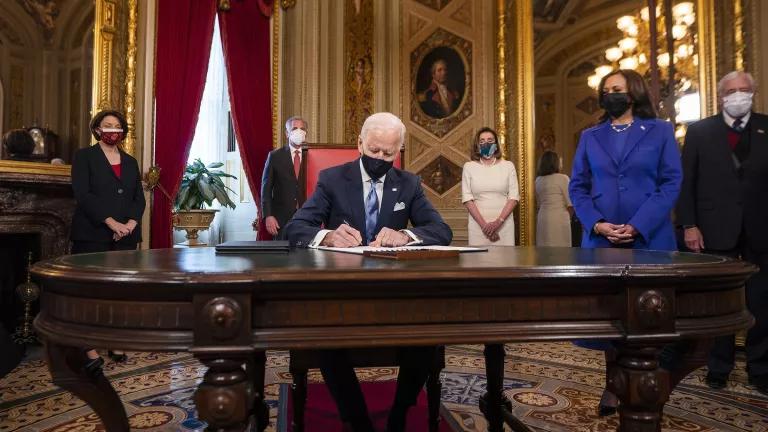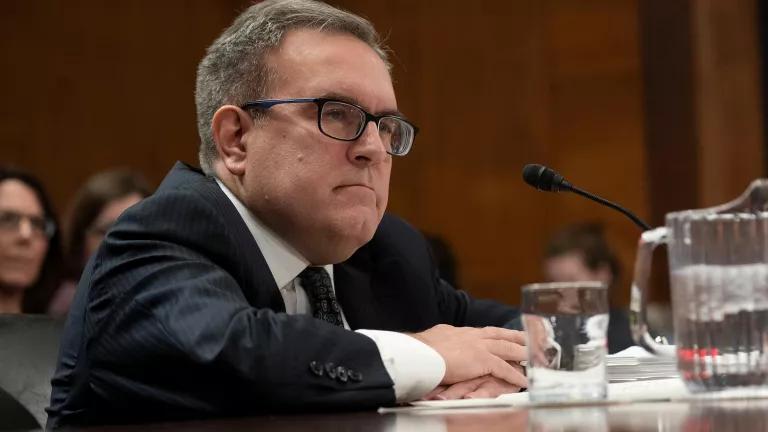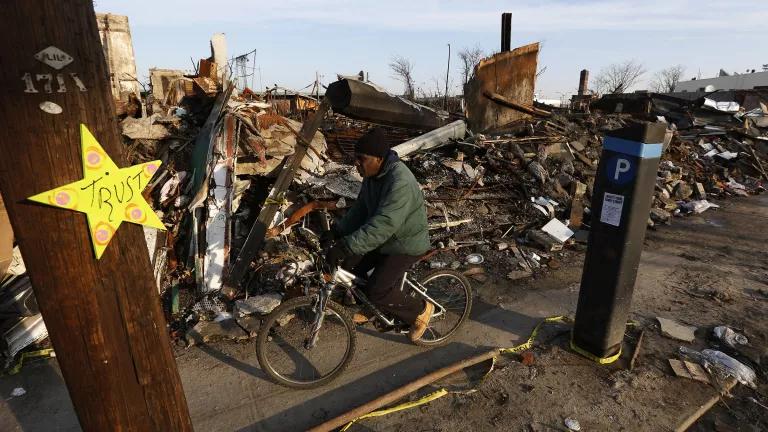The Real Lowdown: The Trump and Congressional Republican Assault on Our Environment, Vol. 26

EPA Administrator Scott Pruitt is having more than a bad week.
What’s with Scott Pruitt?
Acting paranoid? Having secret convos with polluter pals? Flying on chartered, noncommercial, planes? Taking environmental cops off the beat? Stiffing support for Superfund prosecutions?
Clearly, the U.S. Environmental Protection Agency chief has had more than a bad week.
It began early this year when he insisted on an 18-member security detail, at a cost of $800,000 in the first quarter alone, to protect him around the clock from protesters and his own staff. Then, just days ago, we learned that staffing up his personal protection has pulled agents from investigating and prosecuting environmental violators—at the same time Pruitt has been assiduously working to downsize the EPA’s staff and slash the agency’s funding as much as 31 percent under President Trump’s budget, which Congress has not adopted.
Next, on September 26, news broke that Pruitt has spent nearly $25,000 in taxpayer funds to install a soundproof communications booth in his office at the EPA’s Washington, D.C., headquarters. Considering that the EPA already has a secure phone booth, one can’t help but wonder if Pruitt needs this to speak privately with polluters he’s so supportive of—out of earshot of his own staff, who ostensibly are more supportive of the EPA’s mission to protect public health.
And two days later, EPA documents obtained by E&E News revealed that Pruitt has taken four chartered and military flights—to Ohio, North Dakota, and his home state of Oklahoma, as well as within Colorado—at a cost to taxpayers of more than $58,000. In at least one case, he rejected cheaper flight options because there wasn’t a seat for his personal guard. Congressional Democrats have urged the EPA Office of Inspector General—which already is investigating other Pruitt flights to Oklahoma—to look into the noncommercial flights, too.
In other ways, Pruitt and the rest of the Trump administration continue building a record as the worst ever for our health and environment—thought they did back down in one case, thanks to lawsuits brought by NRDC and others.
The EPA May Cut Funding for Justice Department Environmental Work—Including Superfund Litigation
On September 27, the New York Times reported that Pruitt’s EPA has said it may end payments to the U.S. Department of Justice to support litigation related to the EPA’s Superfund program, which tries to force polluters to pay for cleaning up sites they contaminated with hazardous materials.
Pirate Secretary and the Plunder of Public Lands
Shiver me timbers, Mr. Secretary. Ryan Zinke, who heads the U.S. Department of the Interior, on September 25 compared his department to a pirate vessel that captures “a prized ship at sea and only the captain and the first mate row over” to finish the mission. What’s in that ship? Could it be the coal, oil, and gas Zinke wants developed on Interior land?
540,000 Oppose Trump Gutting Clean Water Protections
On September 27, NRDC filed comments opposing the Trump administration’s efforts to repeal the Clean Water Rule, which defines which water bodies will be protected under the Clean Water Act, including those that provide drinking water to more than 117 million Americans. About 540,000 individuals and organizations also filed similar comments.
The rollback, wrote Jon Devine, senior attorney in NRDC’s Water program, will mean fewer streams, wetlands, and other waters would be protected by the Clean Water Act’s safeguards. That, he said, “will lead to more pollution being dumped into the lakes and streams we rely on for drinking water or enjoy for fishing and swimming and will green-light the rampant destruction of wetlands that prevent dangerous flooding.”
And that’s why NRDC and others will continue to fight all-out, in court and elsewhere, to have these protections restored.
Highway Administration U-turns on Addressing Transportation Greenhouse Gases
In the face of lawsuits brought by NRDC, allies, and states that it couldn’t win, the Trump administration executed a swift U-turn on September 25, reinstating an Obama-era transportation greenhouse gas rule Trump had suspended in May. The commonsense federal standard requires some 400 state and local planning agencies nationwide to begin tracking and reducing climate-worsening pollution from cars and trucks on the national highways.
“This is a crucial win for our climate,” said Amanda Eaken, NRDC’s director of transportation & climate. Now planners can get back to work, although the Trump administration intends to rewrite the rule, which will likely prompt further legal action to keep the national standard in place. Because transportation pollution accounts for about 36 percent of the nation’s greenhouse gas emissions, the standard is worth fighting for.
Trump to Tout Killing Safeguards
Looking ahead, Trump has scheduled an 11 a.m. ET event on October 1 to draw attention to his efforts to eliminate thousands of federal safeguards under the guise of getting rid of burdensome regulations.
Where Is Wehrum on Clean Air?
The Senate Environment and Public Works Committee is holding a hearing on October 4 on the nomination of Bill Wehrum to head the EPA’s clean air program. He was nominated in 2006 for the same post by the George W. Bush administration and withdrew when the Senate seemed unwilling to approve him. NRDC and others contend he shouldn’t be approved this time, either.
As NRDC’s Clean Air Project director John Walke wrote, Wehrum “is an industry lawyer who was largely responsible for the Bush EPA’s record of violating the Clean Air Act more often, and allowing more illegal emissions of harmful air pollution, than any EPA administration before or since.”
Wehrum didn’t help himself this past week in a court proceeding where he attempted to undermine Obama-era standards protecting workers from inhaling silica dust, which can be deadly. “People are designed to deal with dust,” Wehrum said. “People are in dusty apartments all the time and it doesn’t kill them.”
Not so. “Tiny silica particles can cause health problems, including silicosis, respiratory diseases such as COPD, lung cancer, and kidney disease,” Walke noted.
That’s this week’s Real Lowdown. NRDC has prepared a list of other far-ranging threats. And we’re vigilantly reporting on the administration’s assault on the environment through Trump Watch.



